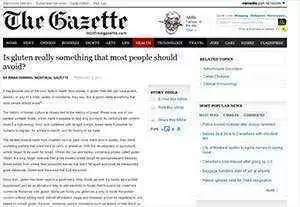.webp.8b3d1471832f98be2d98a1696a860e34.webp)
Celiac.com 11/07/2012 - When it comes to whether or not mothers with celiac disease should breastfeed their children, there has been a fair amount of conflicting information in circulation. Some studies have found that breastfeeding renders a protective role when combined with a 'windowed' introduction of gluten, but others have shown no such protective effect. Furthermore, some researchers question the longevity of the protection offered. An international project called PREVENTCD seeks to boil down current information from a number of studies, in order to produce a primary prevention strategy for infants at risk of developing celiac disease.
 The PREVENTCD project aims to answer the following questions:
The PREVENTCD project aims to answer the following questions:
- Breastfeeding (BF) and celiac disease (Does any BF reduce the risk of developing celiac disease in early childhood? Is there a difference between any or exclusive BF in regard to risk reduction? Is the duration of BF related to the risk of developing celiac disease?).
- BF at the time of gluten introduction and celiac disease (Is gluten consumption while being breastfed important for risk reduction?).
- Timing of gluten introduction (Is age of gluten introduction important to the risk of developing celiac disease?).
- Amount of gluten at weaning (and later) and celiac disease (Is the amount of gluten ingested an independent risk factor for the development of celiac disease in early childhood? Is there a threshold level of gluten consumption for developing celiac disease in early childhood?).
- Does the administration of microbial supplements (probiotics) and/or substrates (prebiotics) has an effect on the risk of celiac disease?
Celiac.com Sponsor (A12):
For this report, a collection of studies (preference given to randomized controlled trials) involving infants at risk of developing celiac disease and breastfeeding practices were examined independently by a number of researchers. Inclusion criteria were applied independently and quality of each study's data was examined using the Cochrane Collaboration's tool for assessing bias risk. Meta-analysis was planned, but outcomes and definitions were inconsistent.
29 studies were initially identified. Of those, 12 studies were included in the analysis. Collating the data from each, the questions were answered as follows:
Effect of Breastfeeding on Celiac Disease: Some studies show a protective effect of breastfeeding children at risk of developing celiac disease, but some show no effect and no studies show a long-term preventative effect. Thus, the main controversy surrounding breastfeeding celiac children is whether it has a significant long-term effect. This should not be interpreted as evidence that suggests breastfeeding does not render long-term protection, but rather that no studies have adequately addressed the question yet (partially due to methodological challenges). Studies showing protective effect have postulated that the protection offered by breastfeeding is the result of introducing cytokines, as well as IgA antibodies, lactoferrin and other enzymes (as well as small amounts of gluten) that contribute to passive immunity by reducing the number of infections in the gut. Data from the studies also suggests that longer breastfeeding periods have a more pronounced effect on celiac disease risk. However, there was no evidence to suggest that 'pure' breastfed children were at any less risk than those both breastfed and formula fed.
Effect of Breastfeeding at Time of Gluten Introduction on Celiac Disease: Data from five case-control studies suggests that breastfeeding at the time of gluten introduction is associated with lower risk of celiac disease compared to formula feeding. The quality of the data is questionable, as most feeding patterns were gathered retrospectively. Again, it is also unclear whether the protective effect merely 'postpones' celiac disease. One study also showed no effect of breastfeeding at the time of gluten introduction on celiac disease autoimmunity (effect on biopsy-proven celiac disease is unknown).
Timing of Gluten Introduction: While the role of age at time of gluten introduction in determining celiac disease risk is unclear, data from observational studies suggests that early and late introduction of celiac disease may increase risk of celiac disease. Early is defined as before 3 months, while late is defined as later than 7 months. One randomized controlled trial showed that gluten introduction after 12 months might be beneficial, but sample size and unclear risk of bias make this finding inconclusive.
Effect of Amount of Gluten at Weaning (and Later) on Celiac Disease: One study documented that introducing gluten in large amounts versus small or medium amounts increased celiac disease risk. This echoes old data collected during Sweden's 1980s celiac disease epidemic, but it is unclear whether this is a dose-response effect or a threshold effect. However, a recent study proposes a quantitative model for a HLA-DQ2 gene dose effect in the development of celiac disease.
Administratioin of Probiotics and/or Prebiotics: There have been no studies examining the effect of probiotics and prebiotics on celiac disease risk in infants, but it is reasonable to assume that manipulating gut microbiotia in early stages of life could affect celiac disease risk. Future studies should investigate this possibility.
In conclusion, there are still a lot of holes in the data, but what we know thus far tells us that:
- Breastfeeding seems to offer some form of protective effect (whether long or short term) on celiac disease risk in infants. Longer breastfeeding periods seem to offer more protection, but some formula feeding doesn't appear to affect celiac disease risk.
- Gluten should be introduced in small quantities between 4 and 7 months.
- Gluten should only be introduced while/if the infant is breastfeeding.
The committee on Nutrition of the European Society for Paediatric Gastroenterology, Hepatology and Nutrition (ESPGHAN) believes that this strategy map will not only decrease rates of celiac disease, but type 1 diabetes, mellitus and wheat allergy as well.
Most of these recommendations have been in place for a while and there is a lot of room for more data, but in the meantime, this is probably the safest strategy for feeding infants who are at risk of developing celiac disease.
Source:
- Open Original Shared Link












Recommended Comments